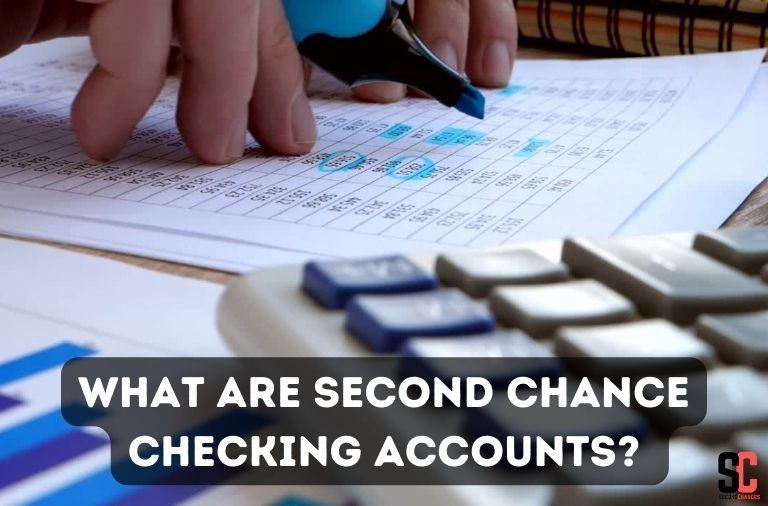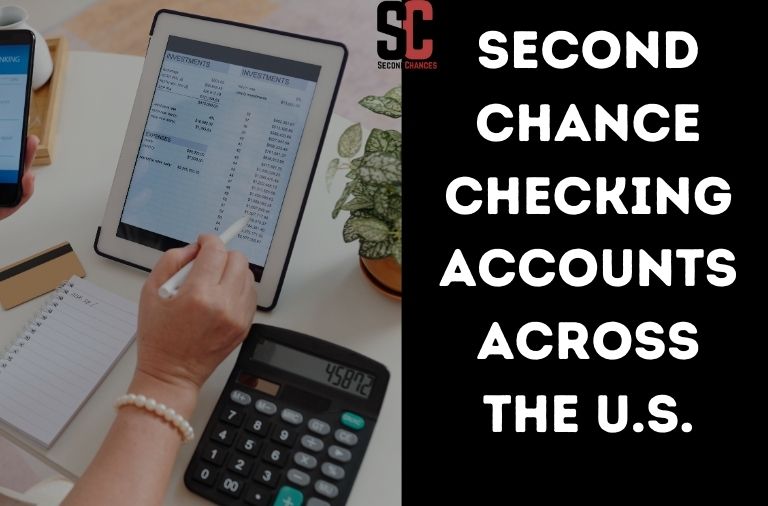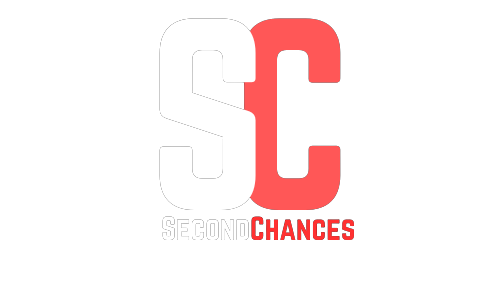Are you looking for Second Chance Checking Accounts Across the U.S.? If Yes, Then this article is for you.
Despite the fact that everyone deserves a second chance, second chances are harder to find in the banking industry. Consider second-chance banking services if past mistakes such as bounced checks or negative balances prevent you from opening a bank account.
Accounts for second chances are easier to open, regardless of your background, and they can provide you with the tools you need to succeed financially.
A second chance bank account may be a good option for those who do not meet the approval requirements for other bank accounts. Here’s what you need to know about second chance bank accounts.
Your credit history is monitored for almost every account you open. Are you a credit card holder? Credit bureaus are being notified. There is no exception to this rule when it comes to checking accounts.
Banks often report checking account infractions to agencies like ChexSystems and Early Warning Services, such as carrying a negative balance for a long time. If you are reported to one of these agencies, it may be difficult for you to open a traditional checking account.
You can reestablish your creditworthiness by opening a second-chance checking account if you’ve been denied one.
Table of Contents
What are Second Chance Checking Accounts?

When deciding whether to approve your application, the bank or credit union does not review your ChexSystems or Early Warning Services report. Similarly, ChexSystems and Early Warning Services generate reports on an individual’s banking activity to assist creditors and lenders in determining their borrowing credibility.
These agencies often review applications for new accounts before approving them if a customer has a history of banking issues. Your application may be rejected if you have a flawed banking record.
On the other hand, second-chance banks do not consider your record when granting you a checking account. In addition to offering no overdraft fees, monthly maintenance fees, or foreign transaction fees, Chime Second Chance Banking is one of our favorite second-chance checking accounts. Unless you withdraw cash from a MoneyPass ATM at a 7-Eleven, or any Allpoint or Visa Plus Alliance ATM, you may still have to pay third-party fees and out-of-network ATM withdrawal fees.
How Second Chance Checking Account Works?
If you do not have a bank account, you might have to rely on expensive services like check cashing or money orders to pay your bills or you can get First Time Credit Card With No Credit History. Your second chance checking accounts allow you to manage daily aspects of your financial life, such as receiving direct deposits, using a debit card, and setting up automatic payments.
The features you can expect from a traditional checking account aren’t always included in second-chance checking accounts. Some banks offer second chance checking accounts in the following ways:
- Overdraft protection is not available
- Limit the amount you can withdraw from ATMs
- Paying bills automatically should be limited
- Fees for maintenance must be imposed on a monthly basis
You can use your second-chance checking account until your credit score is no longer impacted by adverse information reported in your file. There may be an opportunity to upgrade to a different account type. If you want to change your second-chance checking account into a regular account, some banks will assist you.
What to Consider When Picking a Second Chance Bank Account
Are you looking for a second-chance bank account but don’t know where to begin? The following features should be prioritized:
- A low or no monthly fee is charged by some financial institutions just for keeping a bank account. Families with low incomes may find this too expensive, especially when it comes to banking. Look for a checking account with low fees or no monthly maintenance fees, like the Chime Checking Account.
- According to the FDIC, 4.5% of households are unbanked because they cannot afford minimum balance requirements.2 Second-chance bank accounts typically do not have these requirements.
- Savings features that make it easier for you to grow your savings: Some financial institutions offer automatic savings features that make it easier for you to grow your savings. You can put extra change in your savings account if you round up debit card purchases, or you can send a portion of your paycheck straight to your savings account.
- Find second-chance banking accounts that don’t charge overdraft fees to avoid these charges. Overdraft fees can add up quickly, especially for households that are already struggling with finances.3
- It is important that you have access to cash whenever you need it if you are not used to keeping money in a checking account. If you want to easily withdraw your money, find an account with access to a lot of fee-free ATMs.
- Other financial features: If you’re looking for a second-chance checking account, you may also need to improve your credit score. You can repair your credit with a second-chance account that lets you open a secured credit card. To start building credit safely, Chime members can apply for the Chime Credit Builder Secured Visa® Credit Card.
- Mobile banking apps make it easy to manage spending, track low balances, and get alerts when bills are due.
Which Banks Offer Second Chance Checking Accounts?
You may need to consider an online-only bank if your bank does not offer a second-chance account. Several institutions do not advertise second-chance accounts, so if you are denied a checking account at a smaller institution, ask if they offer an option for customers looking to rebuild their credit.
As part of the application process for opening a traditional checking account, you can also find a bank that doesn’t use ChexSystems or Early Warning Services. Capital One (COF), Wells Fargo, Varo, and Chime all offer accounts to people who might be denied more traditional services. Even though the accounts don’t offer as many bells and whistles, they still have essential features.
Steps to Opening a Second Chance Checking Account
Here are some steps you can take if you decide a second-chance checking account is right for you:
- Compare accounts. Make sure you compare prices. Analyze the features and fees of second-chance checking accounts. There are some of these accounts that offer a full range of checking services, while others are limited. You should find a balance between what you can afford and what you need.
- Fill out an application. You can open a second-chance account with many banks online, or if they have branches, you can open one in person. In either case, you’ll need to have a government-issued identification card, know your Social Security number, and be prepared to provide your address and phone number.
- Fund the account. As an opening deposit, you can usually bring cash when opening the account in person. Instead of depositing cash, you may need to send a money order or set up direct deposit through your workplace if you open the account online.
Why is Second Chance Banking Important?
In the United States, 4.5% of households do not have a checking or savings account, according to the FDIC. There is a higher rate of unbanking among households led by single mothers, households of Blacks and Hispanics, households with lower incomes, households with a disability, and households with lower levels of education.
Inaccessible banking services could improve their financial well-being, whether because of negative ChexSystems records, inability to afford minimum balance requirements, or distrust of banks.
A quality second-chance banking service can make all the difference in your financial future. Second-chance bank accounts can be helpful in the following ways:
- Savings Can be Grown: It can be difficult to build an emergency savings fund without a bank account. Additionally, you won’t earn interest on your cash, especially if you have a high-yield savings account. To grow your savings faster, some savings accounts also offer automatic savings features.
- You Can Pay with a Debit Card: Cash is no longer accepted by some merchants, especially in the post-pandemic era. If you don’t have a checking account or debit card, you might have to get a prepaid card. Fees associated with these can increase the cost of everyday purchases.
- Getting Paid is Important: You could be limited in your job prospects without a checking account in some states because employers can require direct deposit.2 Employers may offer other payment methods, but these methods might be less convenient. If you receive a check in the mail, you may have to drive to the issuing bank or a check-cashing store to get your funds.
- You can Improve Your Credit Score by Following These Steps: It can be difficult to improve your credit score if you cannot take out a loan or get a credit card. You may not be able to get a loan from a traditional lender if you have bad credit or no credit at all. How can you start building your credit score if banks and credit unions won’t even consider you? It might be possible to solve the problem with second-chance banking. A secured credit card is more likely to be offered by financial institutions that offer second-chance banking.
- Be Sure to Protect Your Finances: Bank accounts that are insured by the FDIC (or credit union accounts that are insured by the NCUA) are insured for up to $250,000 (or more). All it takes is a fire or a lost wallet to lose your money if you keep cash under your mattress or in your purse.
What are the Pros and Cons of Second Chance Checking?
There are usually monthly fees associated with second chance checking accounts that can’t be waived, and they often require more requirements than standard checking accounts, such as setting up direct deposit or enrolling in a money management class. Overdraft programs are typically not allowed in second chance accounts, since the purpose is to demonstrate you can avoid overdrawing.
It is possible to improve your banking history with these checking accounts, but they do not rebuild your credit history. Secured credit cards are a good choice for that.
In spite of their limitations, second chance checking accounts are often more convenient than alternatives like prepaid debit cards or check-cashing services, which can have high transaction fees and balance requirements, and may lack convenient features like online banking.
Within six months to a year, most second chance checking accounts allow you to upgrade to a regular checking account if you avoid negative balances or fees.
Alternatives to Second Chance Banking
There are alternatives to a second chance account or relying only on cash if you need to pay your bills and make purchases but do not qualify for a traditional bank account.
Prepaid debit cards are one option. The cards are just like “regular” debit cards, in that they can be used for online and in-store transactions. The accounts aren’t linked to checking or savings accounts. When you purchase these cards from a participating retailer or bank, you can fund them with cash. You can refill the card with more money after you’ve spent all of the funds you’ve preloaded it with.
Prepaid debit cards can have steep fees, which is a major downside. There are often maintenance fees associated with these cards, as well as transaction fees, ATM fees, reload fees, and balance inquiry fees. A portion of these fees is usually deducted automatically from your card balance.
To pay your bills, you can also purchase money orders. The fees for money orders vary depending on the dollar amount, but can add up over time. The United States Postal Service (USPS), for example, limits the amount you can include in a single money order.
FAQs
Does Chase Offer Second Chances?
It is usually required that you have good or excellent credit to be approved for Chase credit cards. It is possible to get approved for a second chance credit card even if you have bad credit because they are designed for people with bad credit
Will Credit Card Companies Give You a Second Chance?
In the right hands, it can be a powerful tool for improving your credit score and building your credit history. Second chance credit products don’t require good or excellent credit, and some banks offer credit solutions that let you start over (or from scratch).
Can I Get Another Credit Card with Bad Credit?
The first step when applying for a new credit card is to determine your credit score if you have poor credit. Building or rebuilding your credit is possible with a secured card. Low credit scores are typically required to qualify for these cards, and responsible use often leads to an unsecured card.
Conclusion
When a bank refuses to open a checking account for you, you may be frustrated. However, you may have to settle for fewer features when opening a second-chance checking account. You are entitled to see a copy of the report that prompted your rejection if you have been denied a checking account. If you see any errors or red flags in your consumer report, you can review it for free once a year. It’s easier to get access to the financial products and services you want in the future if you know where you stand.


